David Ruffin (January 18, 1941 – June 1, 1991) – Take Me Clear From Here (1974)
From David's fourth solo LP which reunited him with producer Norman Whitfield, this laid back yet funky jam was backed by Funk Brothers including Earl Van Dyke, Dennis Coffey, and James Gadson.

Watch full video on Substack or Twitter.
David Ruffin was one of the lead singers of the Temptations, a member from 1964-68 when they were at the height of their popularity. He sang lead on “My Girl,” was loved by fans, and released several solo albums after being fired from the group.
Davis Eli Ruffin was born in Mississippi. Starting when he was a child, he sang as part of his family’s gospel group that opened for Mahalia Jackson and other touring gospel performers. He left home at age 14 and went to Memphis, intending to become a minister. Instead, he continued singing and eventually joined the Dixie Nightingales, a male vocal group. Later he sang with the legendary gospel quartet The Soul Stirrers after singer Johnnie Taylor left. Ironically, Taylor had initially replaced Sam Cooke in the quartet.
When he was 16, Ruffin moved to Detroit, where his brother Jimmy was already trying to break into the music business. David met Berry Gordy, Jr. in 1957 and for a time lived with Gordy’s father, a building contractor. He helped do construction work on Hitsville, U.S.A., the building at 2648 West Grand Boulevard that eventually became Motown’s headquarters and studios.
Jimmy signed a recording contract with Gordy’s Tamla Records, and David began working alongside Marvin Gaye packing records at Anna Records, the label owned by Gordy’s sister. He eventually signed with Anna as a solo artist, and released three singles between 1960-62 on the label and its Chicago affiliate Check-Mate, but without chart success.
In 1963, David and Jimmy both auditioned to join the Temptations after the dismissal of founding member Al Bryant. They chose David after he performed with them at Motown’s New Year’s Eve party that December. He officially became a member of the group in January, 1964.
Lead vocal duties during Ruffin’s first year were split between Eddie Kendricks and Paul Williams. But the Temptations’ main producer Smokey Robinson was looking for the right song to showcase the singer’s rough yet tender tenor voice. He co-wrote a song with Miracles member Ronnie White that fit the bill, and “My Girl” with Ruffin on lead became the Temptations’ first number one hit, shooting to the top of the R&B and pop charts in early 1965.
From then on, Ruffin became the group’s primary lead singer. The Temptations hits kept on coming, including notable ones led by Ruffin like "Ain't Too Proud to Beg" (1966), "(I Know) I'm Losing You" (1966), and "I Wish It Would Rain" (1967).
Eventually Ruffin developed a cocaine habit and his behavior began creating problems within the group. He started demanding they change their name to David Ruffin & the Temptations. At the same time, he was missing rehearsals and performances. These issues came to a head after Ruffin missed a concert on June 22, 1968 in Cleveland. He was fired from the group five days later and replaced with former Contours singer Dennis Edwards.
Ruffin sued to be released from his contract with Motown, but the label counter-sued to keep him from leaving. The case was settled, and Ruffin continued recording as a Motown solo artist. He released two albums in 1969, My Whole World Ended (which went top-ten, fueled by its #2 R&B hit title track) and Feelin' Good. In 1970, he and his brother Jimmy joined forces for the great record I Am My Brother’s Keeper. But Motown released the album’s lesser songs as singles, and it only went to #15 R&B and #178 pop.
That same year, Ruffin went back to court to again try and be released from his contract, but with no luck. Around this time he was trying to put together a new group called the Fellas, with himself and Jimmy plus ex-Tempts Eddie Kendricks and Paul Williams, and Dennis Edwards, his replacement as Temptations lead singer. This pipe dream helped further sour his relations with Motown’s management.
What was meant to be his third solo LP, titled David, was recorded in 1970-71 but shelved by Motown and remained unreleased until 2004. It was an indication the label had lost interest in Ruffin’s career, whether because of the lawsuits, his attempt to form a new Temptations, David’s ongoing drug habit, or all of it.
His next album David Ruffin came out in 1973 and was a top-five R&B seller, but stalled at #168 on the Billboard 200. It was produced by Bobby Miller, who produced several records for the Dells including their 1968 masterpiece album There Is, and worked closely with arranger Charles Stepney.
In 1974, Ruffin was at last given another chance to shine when he was reunited with producer Norman Whitfield for his fourth solo LP, Me 'n Rock 'n Roll Are Here to Stay.
Whitfield had helped create many of the Temptations’ sixties hits. His production of “Ain’t Too Proud To Beg” (1966), with Ruffin’s lead vocals arranged slightly higher than his normal range, had resulted in a major success. It stayed at #1 R&B for eight non-consecutive weeks, crossed over to #13 on the pop charts, and led to Whitfield replacing Smokey Robinson as the Temptations’ main producer at Motown.
The album contained memorable songs like the nearly seven-minute epic “I Saw You When You Met Her,” a bonafide Whitfield psychedelic soul symphony, and Ruffin’s superb cover of “Smiling Faces Sometimes” by the Undisputed Truth. Its finest moment was an overlooked one, “Take Me Clear From Here.”
This laid back yet funky jam was written by Vincent DiMirco, a songwriter from New York City. DiMirco was best known for writing the lyrics to the Supremes’ first post-Diana Ross single “Up The Ladder To The Roof,” which went to #5 R&B.
Whitfield’s production ensured that the track had a lush, string-heavy sound, a perfect fit for Ruffin’s emotional, heartfelt vocals. He sang about how much he “don’t want this life you want me to lead,” a relatable storyline for anyone who’s ever wanted out of their current situation.
Like the rest of Me 'n Rock 'n Roll Are Here to Stay, the song featured Funk Brothers Earl Van Dyke on keyboards, Dennis Coffey on guitar, Eddie "Bongo" Brown handling percussion, and James Gadson on drums. Sadly, the LP barely dented the charts at #37 R&B.
In the U.S., “Take Me Clear From Here” remained an album-only cut after its planned release as a single was scrapped. Instead it was only officially issued on a Tamla 45 in the UK, with “I Just Want To Celebrate” as the B-side. Ruffin performed the song on Soul Train, which is further evidence it should have been a single.
He was back on the show again the following year in 1975 with “Walk Away From Love,” the Van McCoy-produced #1 R&B hit single he had long craved. “Take Me Clear From Here” might have gotten him there first if it had been given a chance.
Further reading:
"Soul Set Free: The Lost Legacy of David Ruffin," by David Gorman, Trunkworthy, September 2015
“The Fallen Temptation: The Tragedy of David Ruffin,” by Jason Elias, Rebeat Mag, September 2016
‘I saw you when you met her’ David Ruffin (Me’n Rock’n Roll are here to stay, Tamla Motown, 1974), by Madeleine Byrne, February 2017
#soul #funk #Motown #NormanWhitfield #Temptations #DavidRuffin


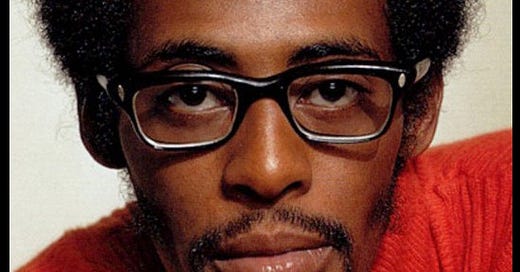

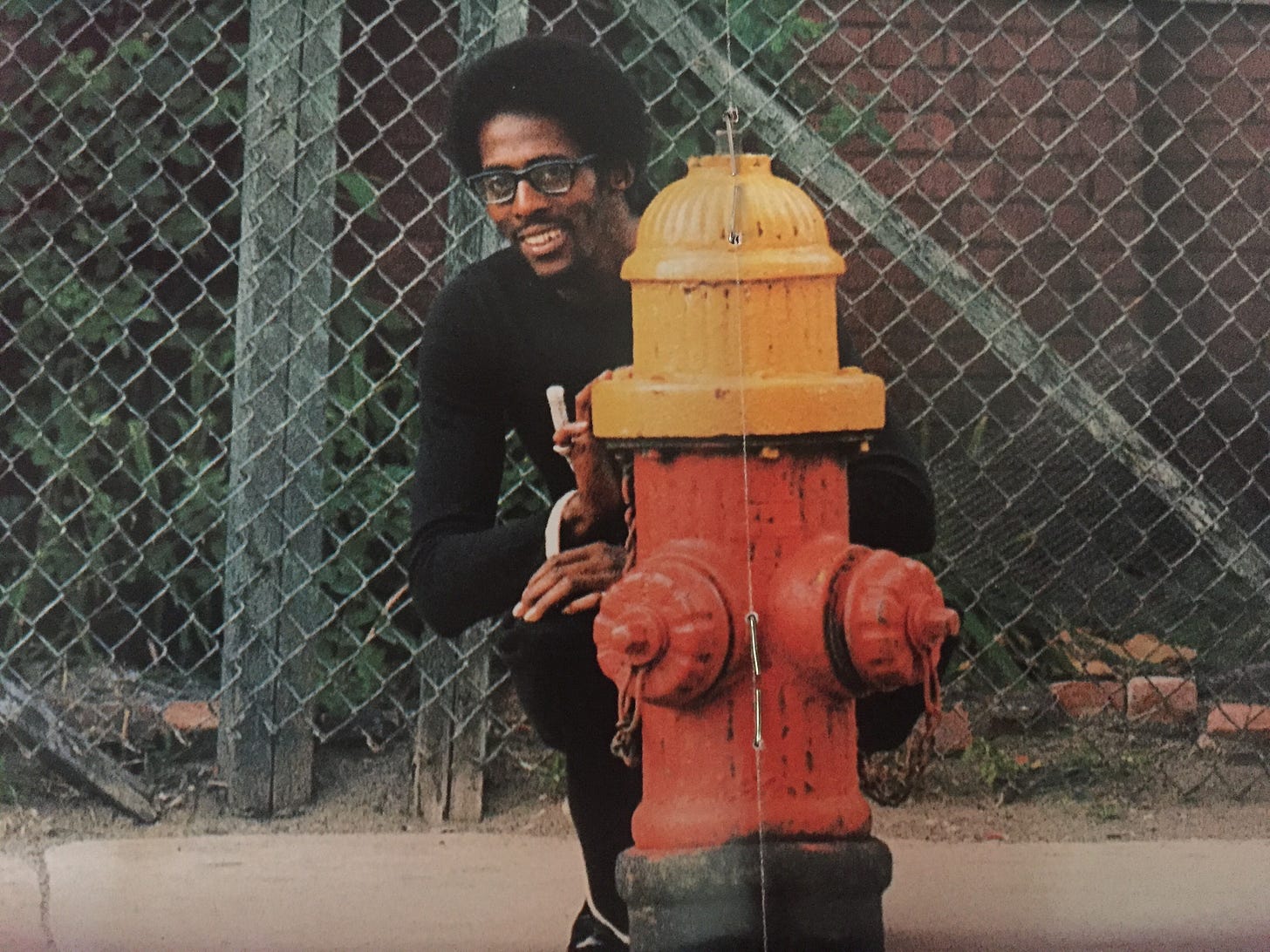
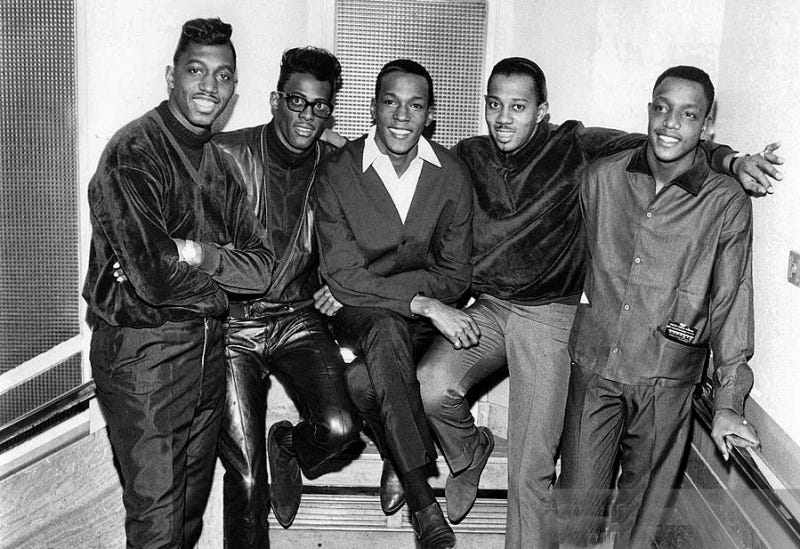
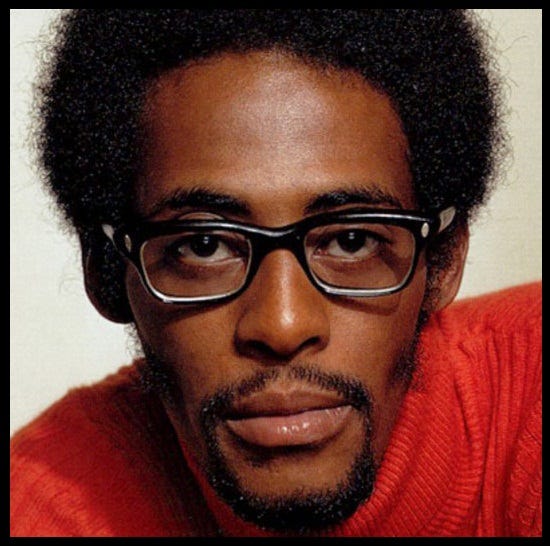
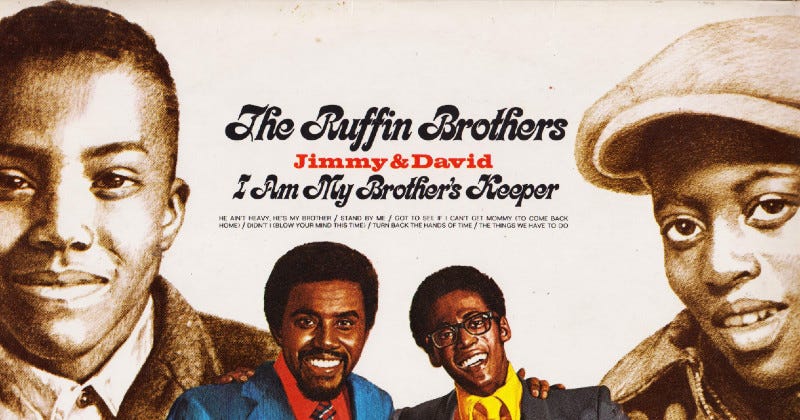
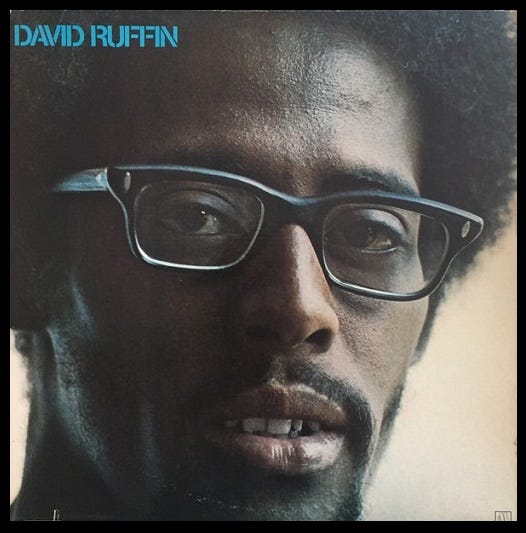
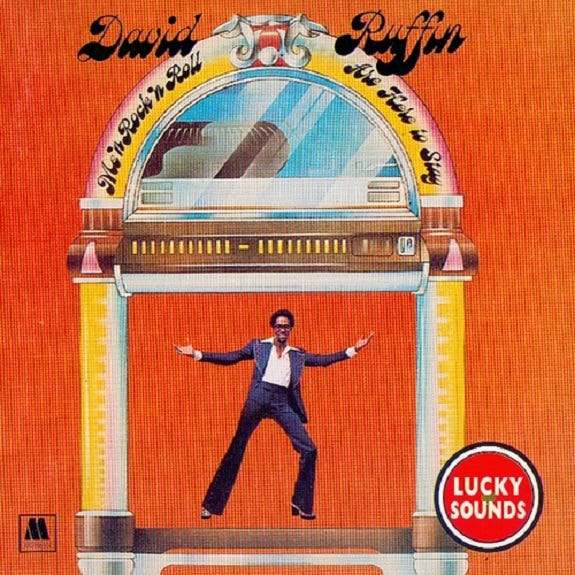
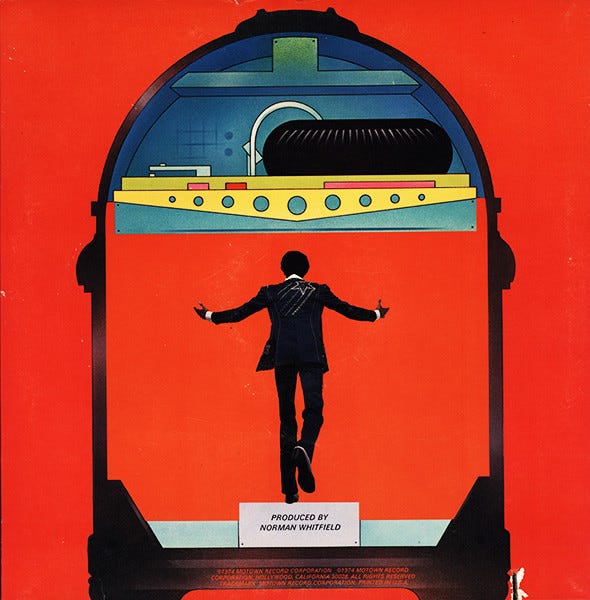
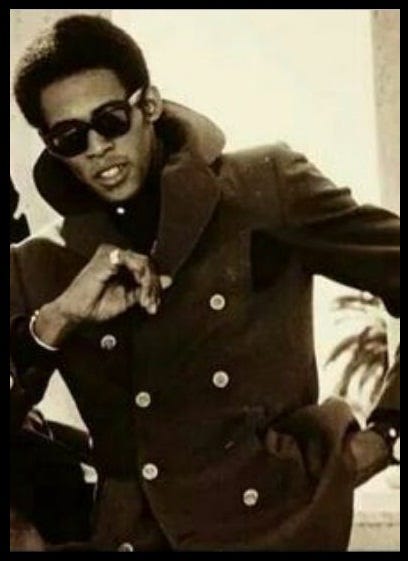
That was a great read. 👍🏾